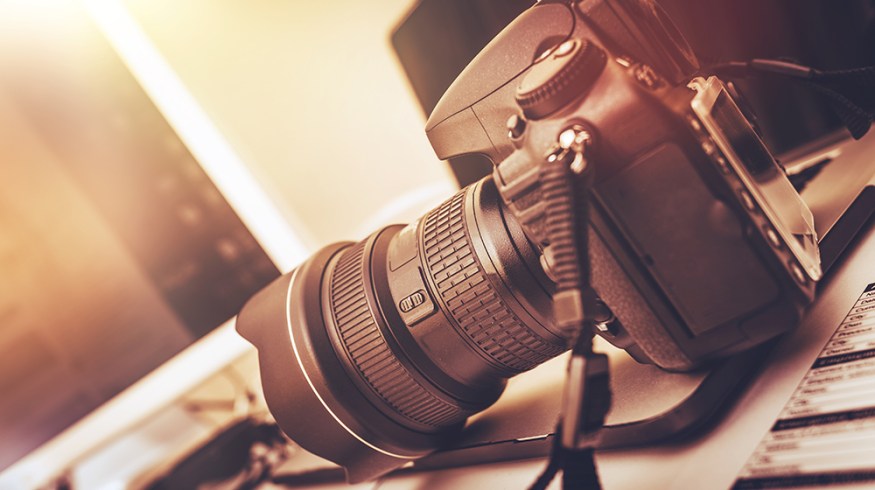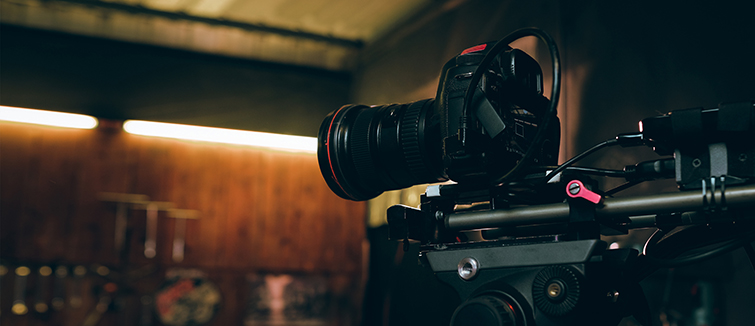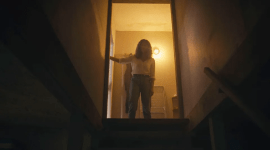
Several Elements to Consider When Buying a New Camera
Ready for an upgrade? Here are five essential things to consider before you invest in a new camera.
I still remember when I bought my first video camera. It was a Canon 7D. I had been shopping around online for months, and I eventually bought it used from a friend of a friend who had posted about selling it on Facebook. I was familiar with several cameras, including the 7D, from working in-house at a video production company. We mostly shot on Canon 5Ds at the time, but after much research, I felt that a used 7D would be the best deal while still affording me the majority of features I wanted and needed in my first camera.
Flash forward to now. The market has excellent video camera options; you have high-end cinema cameras, full-frame mirrorless offerings, and even old and used DSLRs still hanging around to consider.
But how do you decide which camera is right for you? Let’s take a look at five essential things to consider when looking for a new video camera.
Your Immediate Needs
Before you start looking at all the flashy new cameras on the market, you must take a hard look at yourself. Who are you as a filmmaker, and what are your actual video camera needs? For me, for example, starting out, 4K was still a rare and exotic resolution option. I knew I was just looking for a starter camera to shoot run-and-gun videos with my friends. I was planning to upload to Vimeo to build a portfolio and maybe try out some funny videos for Facebook.
Neither of those needs warranted spending thousands extra on a 4K-capable camera. (Plus, I was editing on an old Macbook at the time that would struggle with that footage.)
While we all might have dreams of buying a camera to shoot a feature film or build out a ridiculously cinematic demo reel, it’s best to be realistic. Assess your upcoming projects, goals, and ambitions separately to determine which camera might be the right one for you.
Online Reviews and Test Footage
We live in a golden age of user-generated content. This means you can easily find camera reviews and test footage montages for every camera on the market. These hands-on reviews help you see precisely how each camera’s footage can look. Plenty of comparison videos compare and contrast cameras against each other so you can see how they stack up for aspects like low light and dynamic range.
Speaking of which, here’s a great hands-on review of the BMPCC 4K.
Your Existing Gear and Workflow
When deciding on your camera, take an accurate inventory of your gear and post-production workflow. As I mentioned above, when I was first starting out, I edited on a six-year-old MacBook Pro that was pushing its processing power. I also had a cheap tripod and homemade DIY camera mount rig designed for DSLRs, so I knew I could use that gear until I could upgrade later.
If you already have camera gear and an editing workflow, you’ll have to check to see if your new camera is a good fit or if you’ll need to calculate the expenses of upgrading everything.
Older Alternatives

Image by Nattapat. J.
This is probably the most complex advice to give simply because buying a NEW camera is so much fun! You get to open the box (heck, make an unboxing video out of it!) and switch the camera on for the very first time. You get that good feeling that your camera will last for several years at least and include some excellent manufacturer warranties.
Buying a new camera is a lot like buying a new car. Your investment will immediately drop in value the second you walk out of the store, so you better be willing to hold onto it for several years. However, you must ask yourself if that good feeling is worth it.
In many cases, an older, used version is worth considering. What are the most significant differences between the GH5s and the GH5? Or even the GH4? Would your clients notice the difference? Would you?
An examination into whether or not you should buy new cameras.
New things are great — we all agree. I get it — it’s a great feeling to buy something new. It comes in a nice box; it’s got that shiny new gloss, and you know it’s never been held (or dropped) by anyone else before, save for a quality assurance factor worker or two.
Yet, what if I were to tell you that you shouldn’t get that exciting new camera for your indie short film or burgeoning production company just because you want that exciting new camera for your indie short film or burgeoning production company? Understandably you’d be pretty mad because buying new things is fun. But there are some great arguments for not buying your camera new.
Let’s explore a bit more into why you should — or more often than not, shouldn’t — buy that new video camera and give you some other options, like buying a used one or not upgrading your camera at all.
What Are You Actually Getting?
They say that when you buy a new car instead of a used one, you lose $5,000 in equity the moment you drive it off the lot. But what they don’t tell you is that nothing beats that new car feeling. Is it worth that same $5,000 though, is the better question?
That’s the same argument you could make for buying a new camera instead of a used one, and perhaps the only way you can define what you’re getting. Sure, there are occasionally some instances where a camera is the first to offer a particular sensor or recording rate which has never been offered before.
But more often than not, even with examples like the Canon R5 bringing 8K video to the table, there were, of course, other higher-end cinema cameras that offered 8K before — they were only offered at a much higher price point.
There are very few accurate industry-shaking releases in the world of video cameras. In truth, anytime one manufacturer unlocks some new killer feature, the rest of the competition is quick to copy it and release a version of their own within months.
The Value of Used Cameras
Because of the highly competitive nature of the current camera market, which is almost overrun with quality offerings by great brands like Canon, Sony, Panasonic, Fujifilm, Blackmagic and more, there are many great used cameras to consider.
And in truth, because so many filmmakers and creators are chasing the latest versions of cameras and constantly feeling the need to buy the newest ones, the turnover for cameras quickly hitting the secondhand market is relatively high.
Also, as we’ve discussed on the PremiumBeat blog, in recent years, we’ve more or less settled on a quality threshold for prosumer video cameras which currently sits at around $3,000.
This means that finding quality used video cameras is relatively easy and arguably an excellent option for anyone looking to beat the current market rates and still get highly capable and often slightly used cameras on the cheap.
Consider Renting
Another avenue that is more traditionally associated only with higher-end video productions is the option of renting cameras over buying them. You see this a lot with individuals or production companies that take on commercial projects which require high-cost cinema cameras and lens packages that don’t make sense to own full-time.
However, while production rental houses will always exist and have their high-end clientele, there are also great arguments for indie filmmakers and beginner content creators renting prosumer gear for shoots.
The most prominent proponent for renting again comes back to the high rate of innovation in the camera industry. With significant manufacturers releasing new cameras sometimes multiple times a year, it almost makes more sense to rent a new camera for a week; then, if you wait a few months to rent again, you’ll be able to use an even more recent version.
Fine, Buy the New Camera!
Ultimately, any camera decisions will come down to you and your video production needs. In the rental versus buying debate, you can quickly decide which option makes more economic sense for you by auditing how much you spend each year on rental fees versus the price of a new camera.
However, when it comes to buying used versus new, it’s going to come down to what you want in your camera and how you want to feel buying it. There are slightly more risks with buying used and fewer warranties which you can expect, but you’re also paying less and retaining value more evenly.
As someone who’s bought both new and used cameras in my time, I will say that turning on your very own new camera for the first time is truly one of the best feelings there is. Yet, saving money and buying a used camera are just as great.
So, do your research, shop for the best deals, decide just how long you want your new camera to stay with you, and make your own decisions for that new camera.
Cover image by welcomia.
Looking for more camera buying, renting, and operating tips and advice? Check out some of these articles below.





